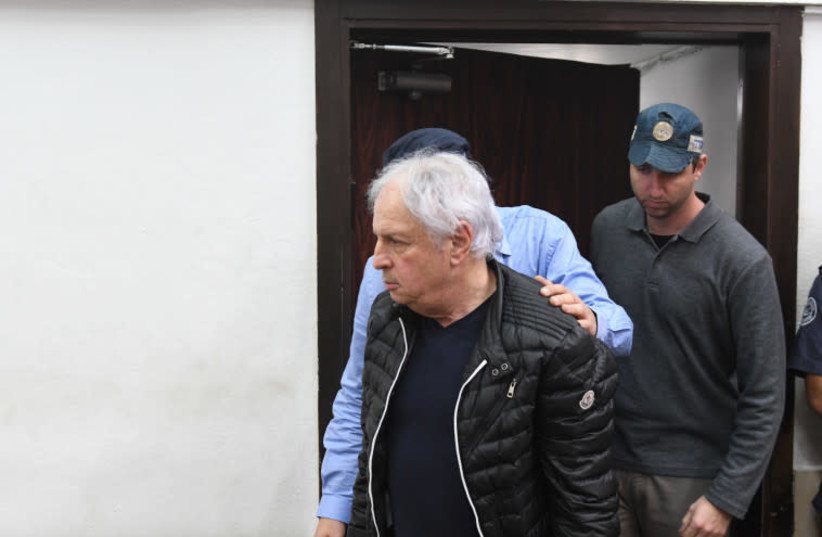Israeli ambassador to the UN Gilad Erdan began his testimony in Prime Minister Benjamin Netanyahu’s corruption trial on Monday, saying that Netanyahu inquired if the then-communications minister was considering Bezeq’s complaints during the ministry’s advancement of telecommunication market reforms in 2014 in a very brief conversation.
Erdan took the stand for the first time on Monday to discuss Case 4000, in which Netanyahu is alleged to have sought regulatory changes that would benefit Bezeq owner Shaul Elovitch in return for positive coverage in his Walla new outlet.
“Netanyahu spoke to me once on this issue ]telecommunications reforms], and asked if I am paying attention and to Bezeq’s complaints,” said Erdan. “I don’t know if he knew all the details, and I didn’t go into them with him.”
“Netanyahu spoke to me once on this issue [telecommunications reforms], and asked if I am paying attention and to Bezeq’s complaints. I don’t know if he knew all the details, and I didn’t go into them with him.”
Gilad Erdan
Why is Gilad Erdan testifying at the Netanyahu trial?
Erdan recalled that he had assured Netanyahu that he had listened to Bezeq’s complaints about wholesale telecommunications market reforms and regulations requiring Bezeq to lease its fixed phone and internet lines to other companies.
Erdan said that the former state company Bezeq had inherited lot of infrastructure, and the reform aimed to create more competition, thereby creating better prices and services.

“I believed [in the reform],” Erdan said, which had also been advocated to him by his predecessor.
When the prosecution asked if Erdan was concerned about the continuation of the reforms after his tenure as communications minister, he said he was, but that was the same for other regulations and policies that he had developed.
A move to allow smaller telecommunications companies to lay their cables in ducts built by Bezeq was reportedly frozen by the Netanyahu-appointed Communications Ministry director-general Shlomo Filber.
Netanyahu is accused of appointing the loyalist Filber as director to advance Bezeq’s interest as part of the deal with Elovitch.
Both Elovitch and Netanyahu are charged with bribery, and the prime minister was additionally charged with fraud and breach of trust.
Erdan at times seemed exasperated with some of the prosecution’s questions, but at times retread on previous items of testimony.
